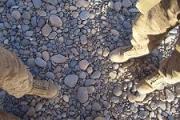So I'm tooling around in my stack of PME books today, and one portion covers the Bush Administrations National Security Strategy, produced in 2002 http://georgewbush-whitehouse.archiv...002/index.html, as well as an interview given by John Lewis Gaddis to Frontline in Jan 2003, just prior to the invasion of Iraq http://www.pbs.org/wgbh/pages/frontl...ws/gaddis.html
Gaddis made the point that the administration, without publicly stating so, believed that the toppling of Saddam Hussien and a resulting shift towards democracy in Iraq might serve as the first domino in the region. Other democratic shifts in Iran and Saudi Arabia were plausible, and that was where the administration was moving with the "grand strategy" it developed in NSS-2002.
Gaddis also made note of how much preemption factored into this strategy, in terms of countering threats. This makes sense to some degree, considering the shock of 9/11 just a few months before, but it leaves me thinking hard on whether this domino theory eventually hurt us or helped us.
"Victory for the American people," and "growth of democracy," became the buzzwords of speeches, and I wonder if all this rhetoric simply polarized other elements of the world into thinking the United States had shifted to a realm of imperialism. Is there additional literature out there (besides the tinfoil hatters) that critiques the Bush Administration in this regard? I've done some looking, but it's hard to wade through all the hits. Furthermore, what does the council think...have elements of the world become polarized for the worse?











Bookmarks